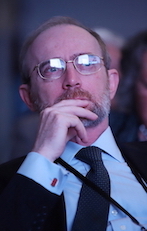Studying at the University of Verona
Here you can find information on the organisational aspects of the Programme, lecture timetables, learning activities and useful contact details for your time at the University, from enrolment to graduation.
Academic calendar
The academic calendar shows the deadlines and scheduled events that are relevant to students, teaching and technical-administrative staff of the University. Public holidays and University closures are also indicated. The academic year normally begins on 1 October each year and ends on 30 September of the following year.
Course calendar
The Academic Calendar sets out the degree programme lecture and exam timetables, as well as the relevant university closure dates..
| Period | From | To |
|---|---|---|
| Sem. IA | Sep 25, 2017 | Nov 11, 2017 |
| Sem. IB | Nov 13, 2017 | Jan 20, 2018 |
| Sem. IIA | Feb 26, 2018 | Apr 21, 2018 |
| Sem. IIB | Apr 23, 2018 | Jun 9, 2018 |
| Session | From | To |
|---|---|---|
| Sessione Invernale | Jan 22, 2018 | Feb 24, 2018 |
| Sessione Estiva | Jun 11, 2018 | Jul 28, 2018 |
| Sessione Autunnale | Aug 27, 2018 | Sep 22, 2018 |
| Sessione Straordinaria | Jan 14, 2019 | Feb 16, 2019 |
| Session | From | To |
|---|---|---|
| Sessione Estiva | Jul 16, 2018 | Jul 21, 2018 |
| Sessione Autunnale | Nov 12, 2018 | Nov 17, 2018 |
| Sessione Primaverile | Apr 1, 2019 | Apr 6, 2019 |
| Period | From | To |
|---|---|---|
| All Saints Day | Nov 1, 2017 | Nov 1, 2017 |
| Immaculate Conception | Dec 8, 2017 | Dec 8, 2017 |
| Christmas break | Dec 22, 2017 | Jan 7, 2018 |
| Easter break | Mar 30, 2018 | Apr 3, 2018 |
| Liberation Day | Apr 25, 2018 | Apr 25, 2018 |
| Labour Day | May 1, 2018 | May 1, 2018 |
| Patron Saint Day | May 21, 2018 | May 21, 2018 |
| Republic Day | Jun 2, 2018 | Jun 2, 2018 |
| Summer break | Aug 13, 2018 | Aug 18, 2018 |
Exam calendar
Exam dates and rounds are managed by the relevant Humanistic Studies Teaching and Student Services Unit.
To view all the exam sessions available, please use the Exam dashboard on ESSE3.
If you forgot your login details or have problems logging in, please contact the relevant IT HelpDesk, or check the login details recovery web page.
Should you have any doubts or questions, please check the Enrollment FAQs
Academic staff
 claudia.annechini@univr.it
claudia.annechini@univr.it
 linda.napolitano@univr.it
linda.napolitano@univr.it

Pozzo Riccardo
 riccardo.pozzo@univr.it
riccardo.pozzo@univr.it
 +390458028053
+390458028053
 nicola.righetti@univie.ac.at
nicola.righetti@univie.ac.at
Study Plan
The Study Plan includes all modules, teaching and learning activities that each student will need to undertake during their time at the University.
Please select your Study Plan based on your enrollment year.
1° Year
| Modules | Credits | TAF | SSD |
|---|
5 course to be chosen among the followingOne course to be chosen among the following3 course to be chosen among the followingOther activitites2° Year activated in the A.Y. 2018/2019
| Modules | Credits | TAF | SSD |
|---|
2 course to be chosen among the following| Modules | Credits | TAF | SSD |
|---|
5 course to be chosen among the followingOne course to be chosen among the following3 course to be chosen among the followingOther activitites| Modules | Credits | TAF | SSD |
|---|
2 course to be chosen among the following| Modules | Credits | TAF | SSD |
|---|
Legend | Type of training activity (TTA)
TAF (Type of Educational Activity) All courses and activities are classified into different types of educational activities, indicated by a letter.
Epistemology and Ethnographic Hermeneutics (M) (2018/2019)
Teaching code
4S003326
Teacher
Coordinator
Credits
6
Language
Italian
Scientific Disciplinary Sector (SSD)
M-DEA/01 - DEMOLOGY, ETHNOLOGY AND ANTHROPOLOGY
Period
Sem. 1A dal Sep 24, 2018 al Nov 10, 2018.
Learning outcomes
Knowledge and capacity to understand
At the end of the course, the student should:
- have a basic knowledge of the fundamental epistemological and hermeneutic principles of anthropological ethnography;
- have a basic knowledge of the main cosmological models (Amerindian perspectivism in particular) as reconstructed by ethnographic surveys;
- have a basic knowledge of the stages in the historical development of naturalistic cosmology.
Knowledge and capacity to apply understanding
At the end of the course, the student should be able to:
• consciously apply analogical reasoning in the cultural field;
- recognize the epistemological bases of an ethnographic text;
- recognize the fundamental features of the main forms of cosmology;
- cosmologically position a philosophical theory.
Independent judgment
At the end of the course, the students will have acquired:
• the capacity to critically analyze an anthropological text in relation to its ethnological bases;
• the capacity to anthropologically analyze a vision of the world (or cosmology)
• the capacity to critically analyze the cosmological foundations of a philosophical theory.
Communication skills
At the end of the course, students should be able to:
• consciously use specific terms relating to anthropological ethnography themes;
• speak precisely about the differences and similarities between the various ethnographic theories;
• speak precisely about the cosmological problems involved in the nature-culture relationship.
Capacity to learn
At the end of the course, the students should be able to:
• analyze the quality of an ethnographic research;
• identify and analyze culturally-oriented cosmological constructions.
Program
- Ethnography between epistemology and hermeneutics;
- The problem of experiments in the history of anthropology;
- Ethnography as an experiment of experience;
- The cognitive bases of analogy and analogies in anthropology;
- Fuzziness: resonance, empathy and serendipity in ethnography;
- The historical construction of the concept of "nature";
- The historical construction of naturalism;
- The new concept of animism;
- Amazonian perspectivism according to Viveiros de Castro
- The new concept of totemism;
- Analogism.
- A special case: Mexican cultures.
Texts
- Piasere Leonardo, L'etnografo imperfetto, Rome and Bari, Laterza (almost any edition).
- One test selected from the following:
Descola Philippe, Oltre natura e cultura, Firenze, SEID, 2014 (only pp. 1-251)
Viveiros de Castro Eduardo, Metafore cannibali. Elementi di antropologia post-strutturale, Verona, Ombre corte, 2017
Gutiérrez del Ángel Arturo Humberto, Las danzas del Padre Sol, Universidad Nacional Autonóma de Mexico, 2010.
| Author | Title | Publishing house | Year | ISBN | Notes |
|---|---|---|---|---|---|
| A. H. Gutiérrez del Ángel | Las danzas del Padre Sol | Universidad Nacional Autonóma de Mexico | 2010 | 9786070216923 | A scelta |
| L. Piasere | L'etnografo imperfetto | Laterza | 2002 | 88-420-6655-9 | Obbligatorio |
| E. Viveiros de Castro | Metafore cannibali. Elementi di antropologia post-strutturale | Ombre corte | 2017 | 9788869480522 | A scelta. |
| Ph. Descola | Oltre Natura e Cultura | SEID | 2014 | 978-8-889-47343-6 | Solo pagg. 1-251. A scelta |
Examination Methods
Learning levels will be assessed by an oral test. Students must be able to demonstrate:
- to have understood the relevant underlying elements of epistemology and ethnographic hermeneutics;
- to have understood the relevant elements concerning the study of cosmologies as collections with ethnographic methods;
- to be able to express their own reasoning in a precise manner, identifying and selecting the essential elements;
- to be able to critically analyze the relationship between philosophical thought and the cosmological construction on which it is based.
Type D and Type F activities
Modules not yet included
Career prospects
Module/Programme news
News for students
There you will find information, resources and services useful during your time at the University (Student’s exam record, your study plan on ESSE3, Distance Learning courses, university email account, office forms, administrative procedures, etc.). You can log into MyUnivr with your GIA login details: only in this way will you be able to receive notification of all the notices from your teachers and your secretariat via email and soon also via the Univr app.
Competenze linguistiche
I crediti formativi universitari relativi alle "Ulteriori competenze linguistiche" (B1 informatizzato se seconda lingua; livello B2 completo se stessa lingua della triennale) possono essere acquisiti in una delle due seguenti modalità:
- iscrizione da parte della/o studente presso il Centro Linguistico di Ateneo (CLA ➔ https://cla.univr.it/it/test-e-certificazioni) per il sostenimento e il superamento delle prove + iscrizione, sempre da parte della/o studente, in apposita lista per la registrazione crediti e registrazione CFU (senza presenza) da parte dell’Università.
Oppure
- equipollenza di certificazioni linguistiche esterne: riconoscimento equipollenza di certificazioni linguistiche esterne (➔ https://cla.univr.it/it/servizi/riconoscimento-delle-certificazioni-linguistiche-esterne).
Gestione carriere
Linguistic training CLA
Internships
Graduation
Documents
| Title | Info File |
|---|---|
|
|
pdf, it, 99 KB, 13/10/23 |
|
|
pdf, it, 101 KB, 10/04/24 |
List of theses and work experience proposals
| theses proposals | Research area |
|---|---|
| Linguaggio e mito in Tolkien | ENGLISH LITERATURE - Critical Theory & Poetics |
| Dialettica del negativo in Meister Eckhart | HISTORY OF PHILOSOPHY - MIDDLE AGES |
| La felicità nel Medioevo | HISTORY OF PHILOSOPHY - MIDDLE AGES |
| Le figure di Eva e Maria in Ildegarda di Bingen | HISTORY OF PHILOSOPHY - MIDDLE AGES |
| IA. Una critica fenomenologica al concetto di Intelligenza Artificiale | The Human Mind and Its Complexity: Cognitive science, psychology, linguistics, philosophy of mind - Philosophy of science, epistemology and logic |
Practical information for students
Documents
| Title | Info File |
|---|---|
|
|
pdf, it, 325 KB, 02/05/23 |
|
|
pdf, it, 212 KB, 02/05/23 |
|
|
pdf, it, 131 KB, 02/05/23 |





















